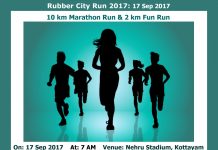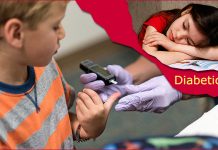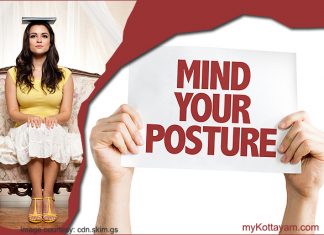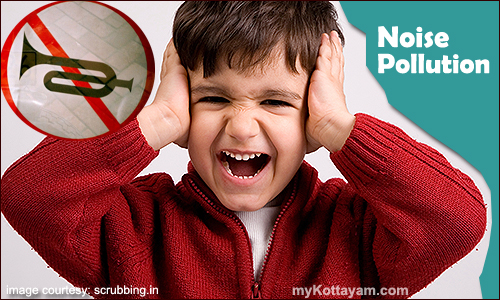
Protect Your Hearing from Noise Pollution:
Noise Pollution is a reality in our everyday lives. Unlike Air Pollution that has widespread awareness, Noise Pollution is not given its due importance and attention by both the public and the government.
Understanding Noise Pollution:
Our general culture and lifestyle permits Noise, especially when compared to the societies in foreign lands. We talk loudly, we honk a lot while driving our vehicles, we like noisy fireworks, we love movies with ear-shattering b/g music, we pray with loudspeakers in our temples/churches/mosques. Noise is ‘Life’ for the most of us.
Add industrial noise, transportation noise, noise from construction activities, noise from household chores etc to the above, and the resultant Pollution is certainly a threat to our hearing.
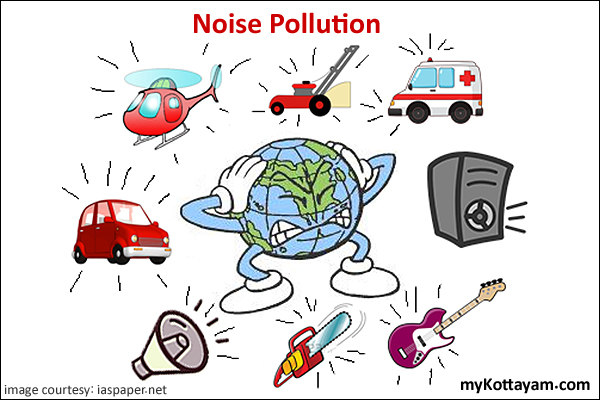
Since loss or degradation of hearing is very slow and gradual, and since it is usually attached to old-age ailments, Noise Pollution is not taken very seriously. It would be too late when we realize it has crippled our hearing.
With our altered new-gen lifestyle, where loud music and media and the virtual reality world accompanies us 24*7, a staggering 39% of the people with varied hearing loss are below retirement age! Every 6th person in the world suffers some degree of hearing loss.
How do we hear:
Hearing is one of the most important senses that we humans possess. The spiral-shaped organ in our inner ear, which is called the cochlea, has thousands of tiny hairs to register sound vibrations. These vibrations are then converted into electrical impulses to be processed by the brain.
Watch a quality video to understand human hearing:
Click here if you can’t see the embedded video above.
Loud noises can damage these tiny hair cells, resulting in hearing loss. While a sudden, short, intense sound (like a gun shot, or a fierce fireworks) can temporarily disable the cells (remember the whistling sound inside your ear immediately after such instances?), prolonged exposure to excessive noise can damage those tiny hair cells permanently. Such damages cannot be reversed, mind it.
Permissible Level of Noise:
Anything up to 85 decibels (dB) is considered to be okay for your hearing.
If you listen to sounds above 85 dB for longer duration, it’s harmful to you. Now, where does this 85 decibels lie on the scale?
- Normal conversation: 60 to 65 dB
- A busy Indian street: 80 to 100 dB
- Motorcycle or lawnmower: 85 to 95 dB
- Music at a nightclub: 110 dB
- MP3 player at max volume: 112 dB
- Ambulance siren: 120 dB
- Hand drill: 98 dB
- Cinema: touches 100 dB during big action scenes
- Car horn: 110 dB
- Chainsaw: 115 to 120 dB
- Rock concert: 120 dB
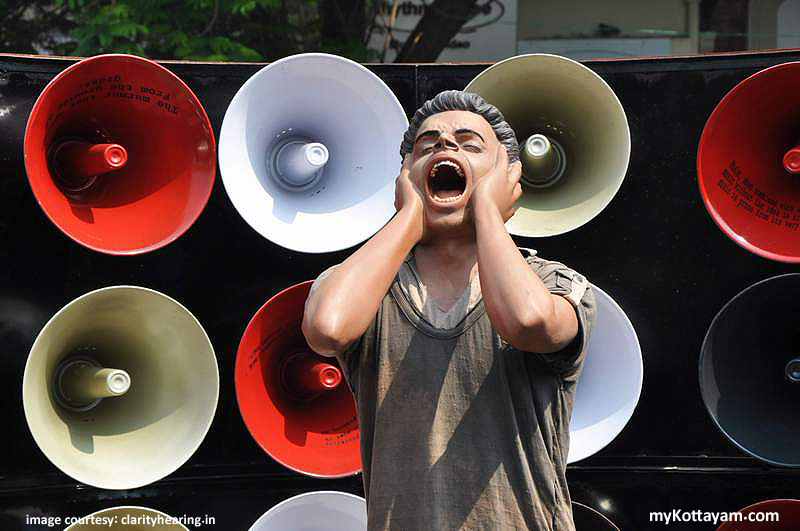
Protecting Your Hearing:
It’s your personal responsibility to protect your hearing abilities. Though the goverment is taking measures to check the level of Industrial/Vehicular/Public Noise through legislations and regulations, it’s going to take time to be effective.
- Do not expose your ears to excessive noise continually for longer duration.
- If you must stay amidst loud noise, wear earplugs or earmuffs.
- Give rest to your ears in whatever way you can if you are continually exposed to loud noise.
- If your place of employment is noisy, talk to your HR or the responsible body. They are bound to give you protection. Be proactive.
- Understand the term or thought “Noise Diet”. Based on how frequent you’re exposed to noise in your day-to-day activities, diet.
- Keep your personal music palyer’s volume control to sensible and “smart” levels.
- Follow the 60:60 rule. It says, “Listen to your music at 60% of the maximum volume, for no more than 60 minutes a day”.
- You must carefully protect your baby or child’s hearing.
- Ensure you take medicines that can harm your earning under strict medical supervision (like Ototoxic drugs and chemicals).
- Safeguard yourself from diseases that can cause hearing loss. Like meningitis, measles, mumps, rubella, whooping cough and syphilis.
- Avoid head injuries. Do wear a helmet while riding two-wheeler.
- Lead a healthy lifestyle that has enough physical exercises, personal hygiene and rest.
- Do not try to clean your ears with buds or any other inserts. Ear wax is a part of our hearing system, which need not be cleaned under normal conditions.
The ability to hear must last for one’s full lifetime. To be able to listen to the pleasing sound of Nature, our dear and near ones, and our favorite singers, is precious. It is essential for communication. Let us be careful to keep it intact.




